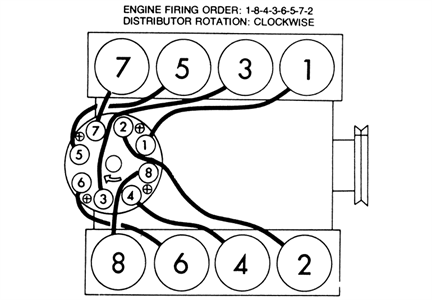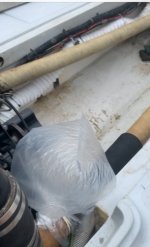If lots and lots of water got into the cylinder(s) for a leaky riser gasket then you could hydro-lock the engine and bent a connecting rod or 2. that would seem less likely if the engine still starts and runs OK.
The fact that you got 175 psi AFTER replacing the riser gasket should be encouraging, unless something happened afterward. Are the riser/elbow bolts still tightened?
Thanks for your response. I appreciate additional inputs and thoughts as I try to figure this out. Like you noted, it’s going to be harder to find once I tear it down, unless issue is obvious.
I run in saltwater. Saltwater runs through the heat exchanger and out the manifolds. Coolant in the block.
Elbow bolts are still tight. No leaks at joint between elbow and manifold seen on outside.
One other recent event that MIGHT be related?Replaced the ignition wires (spark plug wires) this summer. I accidentally swapped 4 and 6. It ran VERY rough when I started it up. And I rev’ed it a bit thinking that might “clear it out”. But I didn’t run it long like that. Once I figured out the issue, I swapped 4 and 6 back. It started right up and ran fine. Has been running fine all summer. No loss of power. Good acceleration to WOT.
I first started noticing a “different sound”in engine in September. It was making a “chugging” sound in the exhaust. As engine runs, I hear a “chug, chug, chug” but engine isn't vibrating and appears to be rotating smoothly, watching the belt and harmonic balancer. I put the timing light on it and it’s running smoothly and right on the mark for 10 degree BTDC.
That chugging sound in exhaust can definitely be heard when it’s running on hose out of water. And “chugging” is coming from port side, same side as low compression cylinder - #5.
Compression test sowing low compression on #5 was first clue into reason for the “chugging”.
Thanks again for sharing any thoughts.





















